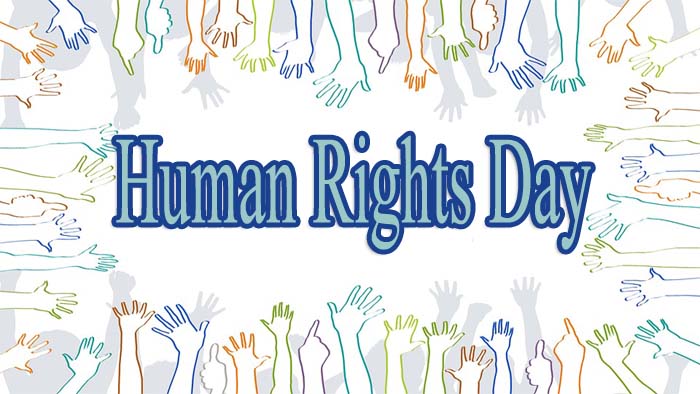World Human Rights Day
13.Apr.2023
The horrors of the Second World War shook the entire world! Besides the thousands of precious lives lost, the world witnessed perhaps the most gruesome violation of human rights during that time. In a way, the war was a wake-up call for the entire world.
In 1945, the founding member nations of the then-newly formed United Nations came together to draft many radical laws to protect and promote the basic human rights of their citizens. In three years, in 1948, the combined efforts of these nations paid off when the United Nations General Assembly adopted and proclaimed the Universal Declaration of Human Rights," declaring that respect for human rights and human dignity "is the foundation of freedom, justice, and peace in the world.
Soon after 1950, the U.N. invited all member states and interested organizations across the globe to observe the 10th of December every year as World Human Rights Day. Last year, 2008, marked the 60th anniversary of the Universal Declaration of Human Rights. The theme of the campaign was "Dignity and justice for all of us."
In commemoration of this eventful year, the UN launched a yearlong campaign during which all parts of its family reinforced the vision of the Declaration as a commitment to universal dignity and justice and not something that should be viewed as a luxury or something on a wish list.
World Human Rights Day is celebrated with gusto in New York City, the headquarters of the UN, and across the world. The day is marked by high-level political conferences and meetings and cultural events and exhibitions with a focus on issues. More importantly, it is on this Day that the five-yearly UN Prize in the Field of Human Rights and the coveted Noble Peace Prize are awarded.
What are human rights?
According to the UN, human rights are interrelated, interdependent, and indivisible rights inherent to all human beings without discrimination and irrespective of our nationality, sex, national or ethnic origin, color, religion, language, or any other status.
We are all equally entitled to our human rights without discrimination. The concept of human rights has many faces. Civil and political is the right to life, equality before the law, and freedom of expression; economic, social, and cultural rights are rights such as the right to work, social security, and education; and collective rights are the rights to development and self-determination.
Treaties and laws to enforce human rights
All governments across the world are obliged to express, guarantee, and uphold the basic human rights in all faces by means of laws in the forms of treaties, customary international laws, general principles, and other sources of international laws.
In the wake of the economic downturn faced by many of the world's countries today, the Office of the United Nations High Commissioner for Human Rights (OHCHR) has been holding conventions and meetings to explore the human rights violations affecting already marginalized populations in many member countries.
It has urged the countries to do everything possible to ensure that the current recession does not affect the rights to work, housing, food, health, education, and social security.
Right to food, education, and health
In a country that is self-sufficient in food production and has substantial food reserves, the basic right to food has not been met. The rights to education and health are under attack.
Almost 22% of the population still lives in deplorable conditions due to acute poverty and hence cannot afford to enjoy the basic rights to nutritious food, quality education, and health services.
Despite the Ministry of Food's initiatives like the public distribution system, the midday meal scheme, government-sponsored hospitals, and various other methods in place, a section of society still does not benefit from it.
.png)
